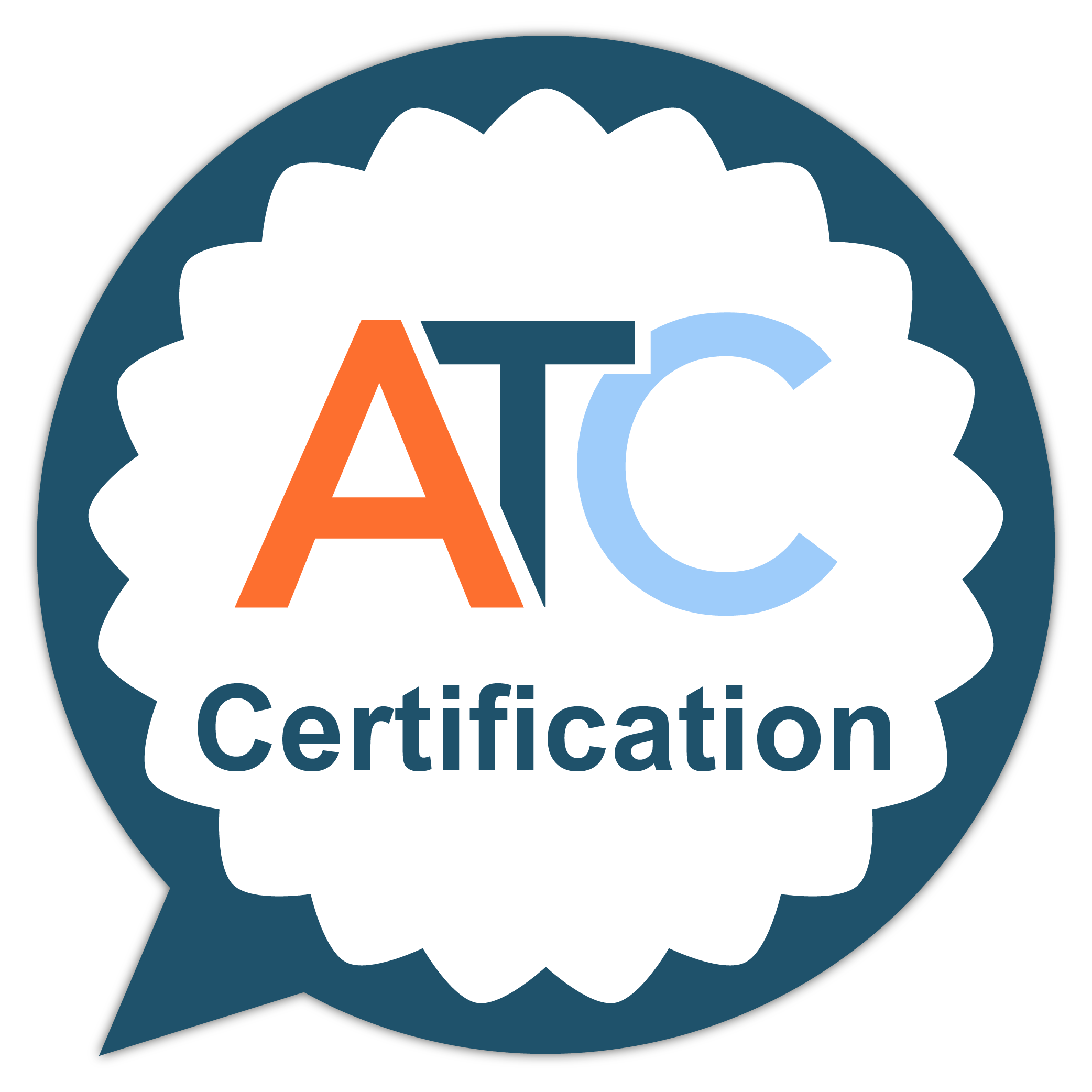ISO standards are international best practice standards that set out requirements and quality expectations for the provision of language services, including translation and interpreting.
Compliance with international standards allows Language Service Providers to improve their operational efficiency, quality, customer satisfaction, and business resilience. LSP’s can demonstrate their compliance with international standards through certification with an independent certification body, giving clients and other stakeholders confidence on the quality and reliability of their services and operations.
The ATC endorses the development of language services industry standards to enhance the position of the language services industry. As a language services industry trade association, the ATC is at the forefront of both the development and the application of the emerging ISO standards for the industry and ensuring that they serve the purposes of its member companies.
ISO standards development
ISO standards for language services are developed at the ISO Technical Committee TC37 and Sub-Committee SC5 of the International Organization for Standardization (ISO).
The EUATC holds a liaison role within ISO TC37 and SC5. The EUATC’s national member associations participate in the development of ISO standards through their national standardisation bodies, working with other national stakeholders within the country’s ISO mirror committees.
These national mirror committees review and comment on ISO standards under development and vote on the country’s position during the various drafting stages towards publication of an ISO standard. Typically, mirror committees include representatives from language service company associations, translator and interpreter associations, academia and the national standardisation body.
For the EUATC’s member associations, getting involved in ISO development work at the national level allows them to influence the way emerging language industry standards are defined and used in the future.
ISO standards (published and under development)
The ATC ISO Standards Commenting Group
The ATC is actively involved in the development of new ISO standards for the language services industry via The British Standards Institution (BSI) and the United Kingdom’s mirror committee at the ISO Technical Committee TC37 and Sub-Committee SC5 at the International Organization for Standardization (ISO).
The ATC’s ISO Standards Commenting Group reviews and comments on ISO standards under development and votes on the UK’s stance during the various drafting stages towards publication of an ISO standard. The group is headed by the ATC’s Lead on Standards, and has LSP representatives from a variety of UK-based companies providing valuable input to the standards development process.
Getting involved in the commenting group allows you to influence the way emerging language industry standards are defined and used in the future.
ISO Standardisation Structure
ISO technical sub-committee SC 5 of ISO’s technical committee TC37 is the sub-committee responsible for the development of translation, interpreting and related technology standards.
In the ISO SC 5, working groups (WGs) are formed of interested representatives of the national mirror committees to perform the work necessary to take a project from new work item proposal (NWIP) through all stages of its development to final publication as an international standard.
Apart from national mirror committees from countries involved in ISO work which are eligible to vote during the various stages of standard development, there are also liaison bodies, such as GALA, EUATC and WIPO, who can comment on standards under development, but who do not have a vote in the process.
Overseeing all the technical work of ISO committees with respect particularly to the committees operating within the requirements of the ISO directives is the ISO Technical Management Board (ISO/TMB).
ISO Standardisation Process and Concepts
Throughout the stages of a new standard’s development cycle from a new work item proposal (NWIP) to a published international standard, it is the ISO national standards body members, or member countries, participating in the development work in the ISO technical committees, who vote on whether to accept or disapprove the standard in its current stage of development in order to move to the next stage.
The process starts with a NWIP for a new international standard to be developed being justified as being needed and submitted by a member country for ballot. It is considered by participating member countries and balloted. If at least 5 member countries express interest and offer named experts to work on the standard, an ISO working group (WG) is formed of experts who will participate in the work of creating a working draft (WD) which, if approved proceeds to a committee draft (CD).
The CD is then the basis of the work that follows for all national standards body mirror committee’s members and liaisons to comment on and member countries’ mirror committees only (not liaisons), to ballot through to the next stage.
This is the draft international standard (DIS) stage when the standard is open not only for commenting by the national standards body, but also by the general public in the country.
Before a standard finally becomes a new international standard, it undergoes a final draft international standard (FDIS) stage, when only editorial comments are accepted unless a negative vote is entered in which case, a technical reason has to be provided.
Recent changes in the process have been introduced in the ISO Directives whereby it is now possible for a WG to opt out of both the CD and FDIS stages. These allowances will make sense when speed is necessary and advisable given the maturity of the content.
Elements of ISO Standardisation Process
Click for the PDF file which provides a schematic view of the elements involved in the ISO standardisation process.

